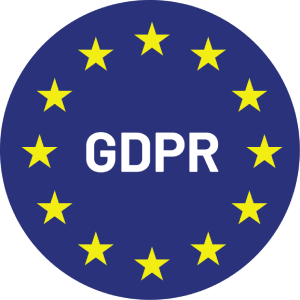The New Pillars of Marketing
Having access to infinite information and choice has changed the way everything in the world works. It is time we changed marketing, too.
The change can’t just be minor or cosmetic, we need a new philosophy. Forrester has introduced the idea of Moments-based marketing to adapt to this new world. This idea integrates perfectly with Wyng’s approach of privacy-first personalization with zero-party data.
The 4 Ps of Marketing No Longer Apply
Price, Place, Product, and Promotion are being replaced by one P – Personal.
Well, Price still has a big role in buying, but in a world where people have infinite information and options at their fingertips, the others don’t matter very much. And with new privacy laws, Promotion is quickly becoming less and less important.
With so many options available for every product, it’s no wonder consumer purchasing decisions have become more complex. People need more than just cool features and convenience. They want to feel like there’s some sort of emotional connection between them and what they buy. They need to feel special, like the experience they are having is unique and customized. But how is this possible for brands serving millions of customers?
Marketing Needs to Shift Away From Campaigns
Creating that special relationship starts from the first impression and falls under Marketing. Today, nearly all marketing activities are based around campaigns.
Campaigns are:
- Broadcast
- Static content, not interactive or dynamic.
- Targeted more than personalized
- Shallow personalization maybe by name or location
- Privacy-last
In the past, you could count on information asymmetry and scarcity to drive your marketing strategy. This is why marketing campaigns and funnels evolved. You broadcast your messages via ads, rely on static website content to engage, and then follow up with generic emails to convert and sell more. But as people have become savvier about how brands operate, they’ve been able to adapt and find their own information—and they increasingly want to do their own research before interacting with a brand.
Be in the Moment, Because Moments Are “In”
That means that we need a new approach for marketing. Instead of ignoring the idea that customers can do their own research – we should focus on making that research more efficient and effective. This means helping people access the right information for them more easily – right when they need it. In the Moment.
The term Moment comes from Google’s research into human behavior; it refers loosely to any activity that occurs between two people or in front of a screen—the act itself is what matters most rather than any specific activity (e-commerce purchases or checking Facebook updates).
According to Forrester, Moments have 5 Key Elements
As the name implies, this is a moment in which your product or service can provide value.
You might think of Moments as being synonymous with “moments of truth” or “touchpoints”; but in reality, they’re more than that. According to Forrester, Moments have 5 key elements:
- Context — The circumstances that brought them to you.
- Consumer — Who exactly is engaging with your content and products?
- Channel –– Where are they talking to you and how?
- Trigger – This is the “when” of their purchase
- Content – this is the information and content they need
Of these five, Context is the most important and the most difficult to obtain.
Context Must Be Earned
Context is a tricky one. Some examples of context include:
- Needs: What problem are you solving?
- Values:
- Preferences: What parameters are important in your decision?
In summary, Context IS zero-party data. You can’t assume context. It’s dangerous to guess what people want based on demographics or click tracking – it can cost you customers as 67% of people are likely to leave a brand or shop elsewhere after one bad experience.
Context must be earned directly from customers. The key to context is to offer value in exchange for the information. It helps to make it as easy as possible for them to provide it – in as little as one click.
Another note about context; you don’t need to know who someone is to help them. In every retail experience, does the sales associate ask for your name and email before asking how they can help? Websites should work the same way.
A New “P” of Marketing – Privacy
The urgency to rethink marketing is immediate. Because there is another way coming soon – Privacy. We have only begun to see the impact of privacy on marketing campaigns that were built for the old way of thinking, and it is already looking bad. Once privacy laws and norms fully mature, the old types of data from cookies and tracking will almost disappear completely. Brands will be even more reliant on the big walled gardens of tech – unless they get smart about serving customers in the Moment.








